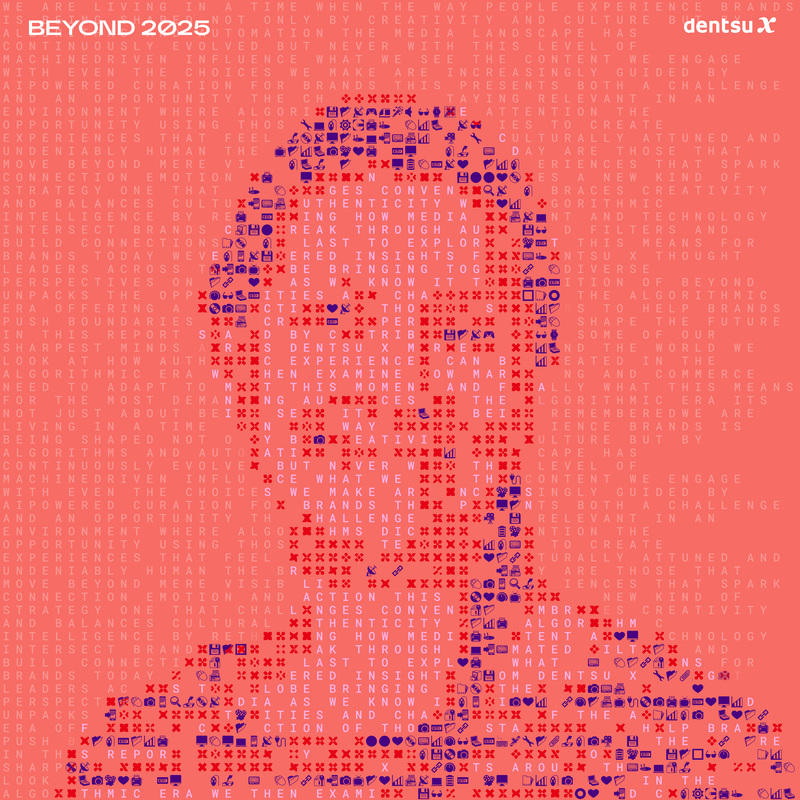This article is part of Beyond 2025: Winning in the Algorithmic Era, dentsu’s latest thought leadership series exploring what it takes for brands to thrive in a future shaped by automation, AI, and algorithmic decision-making. Each piece spotlights a key media or marketing shift and includes practical considerations for brands navigating this new landscape.

The future of brand storytelling is about thriving in a fragmented landscape rather than being confined by it.
The Why: First-party data’s role expands
According to dentsu’s Consumer Vision 2035, while 70% of consumers across the world agree AI will be used in most aspects of their lives ten years from now, 80% of them believe the best way for a brand to stand out and earn their loyalty is its ability to surprise them in unexpected ways.
As such, brands cannot afford to let a single technology platform dictate what works. Otherwise, they’ll be trapped in an endless cycle of chasing the ever-changing algorithm much like a modern-day Sisyphus. Instead, they must take control of their own distribution strategy, owning the narrative across channels no matter how fragmented the touchpoints. Their story must be consistent, cultivate direct relationships with their audience, and create demand for their content rather than waiting for an algorithm to surface it.
First-party data will play an increasingly role in that pursuit.
Dentsu’s Customer Engagement: Future Trends 2024 report found that 80% of consumers are open to personalization, cementing the significant role first-party data plays in delivering personalized customer experiences and improving engagement.
But first-party data also plays another critical role: helping algorithms understand brand identity. AI trained on brand data will optimize customer experiences by improving attention, loyalty and, ultimately, revenue. When algorithms understand what audiences want, how they behave, and what keeps them engaged, brands can refine their marketing strategy, delivering experiences that resonate within their communities, optimizing content for meaningful personalization, and enhancing the way consumers connect with them.
The Brand Opportunity: Enduring storytelling amid a fast-paced environment
Brands can use data to become more perceptive. Dentsu’s Consumer Vision 2035 explains how AI and machine learning can be harnessed to anticipate consumer behaviors and preferences, enabling brands to stay ahead of trends and deliver personalized experiences. It highlights the importance of integrating AI to uncover insights that may not be immediately apparent, thus identifying opportunities before they become mainstream. The takeaway? Brands should not let AI decide their story. They should use it to anticipate what their audience cares about before the algorithm does.
Brand should also invest in creativity to break the mould. The most successful brands aren’t playing the engagement game, they’re breaking the rules. Heineken goes beyond selling beer, they spark important societal conversations around sports. Galderma aren’t just about skincare, they champion dermatological wellness. Kroger don’t only stock groceries, they nourish communities. These brands understand that when you make content people want to engage with, you guide the algorithm to work for you.
Algorithms change, but distinctive, compelling storytelling endures. The brands that thrive are the ones that define success on their own terms.
To explore more trends and brand implications, download Beyond 2025: Winning in the Algorithmic Era.

